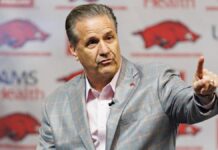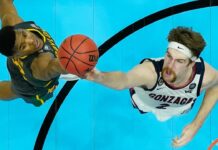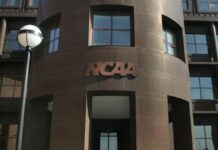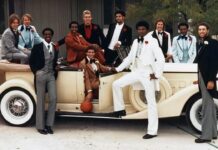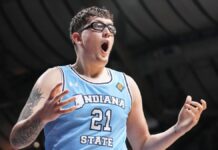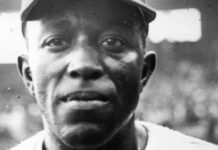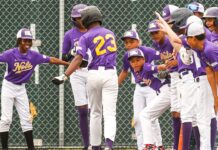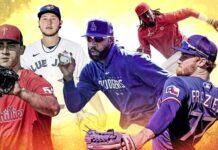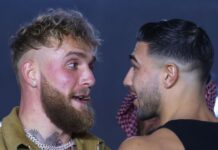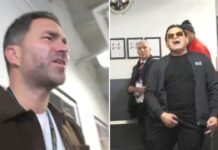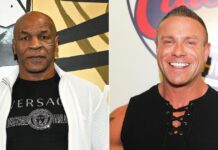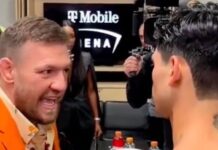It isn’t a surprise when skepticism arises after a change is announced.
Three years ago, the NCAA revised its rules and began implementing a certification process for agents to represent Division I men’s basketball players while they weigh their prospects of trying to compete in the NBA. Under the change, if student-athletes use an NCAA-certified agent while gathering information on whether to enter the NBA draft, they retain their college eligibility if they choose to return to school.
The revised rules altered the recruitment process that agents have with prospective professional players and brought pushback from agents, as well as their clients already in the NBA.
BRACKET: First preseason 2022 March Madness bracket predictions from Andy Katz
Todd Ramasar, founder of Life Sports Agency, said he was part of the skeptical crowd of agents who didn’t approve of the NCAA certification program. But after examining the issue further, he decided to go through the process.
“I saw the opportunity, and it wasn’t just the certification of student-athletes who wanted to maintain their eligibility,” Ramasar said. “I thought it was a good opportunity to build a relationship moving forward with the NCAA. Plus, I have nothing to hide.”
Other agents also have gotten on board with the new NCAA certification.
Mike Naiditch and his partners at Beyond Athlete Management weighed the pros and cons of certification, and they decided Naiditch should go through the process.
“I didn’t see any harm in doing it,” Naiditch said. “By being certified, I felt it only added legitimacy and allowed people to operate aboveboard without being deceptive or without hiding. I thought it would be a great opportunity to be a leader and a front-runner and unafraid of public backlash.”
The rules changes were spurred in 2018 when the Commission on College Basketball reported that NCAA student-athletes needed earlier professional advice to determine whether it is in their best interests to declare for the NBA draft.
As a result, the NCAA agent certification program was created. A student-athlete whose team’s basketball season has concluded can start the process by requesting an evaluation from the NBA Undergraduate Advisory Committee via email at UAC@nba.com.
After an NCAA player fills out the application for feedback from the NBA, he can begin working with an NCAA-certified agent. If a player chooses to sign with an agent not certified by the NCAA, he forfeits his college eligibility.
Becoming certified
Agents who have not previously been NCAA-certified must pass a background check, take the first-year applicant exam and pay applicable fees.
Study materials are posted on ncaa.org/agent-certification, and the NCAA will host a review session for agents before administering the exam.
The exam is to be completed in person at the NCAA national office in Indianapolis unless the Enforcement Certification and Approvals Group waives the in-person requirement due to extenuating circumstances.
This school year, the exam will be offered at 1 p.m. Eastern time on two dates: Dec. 7 and Jan. 11.
FINAL FOUR: 8 men’s basketball Final Four dark horses for the 2022 NCAA tournament
The exam is open book and consists of 50 multiple choice or true/false questions focusing on the following areas:
- NCAA initial and continuing eligibility requirements.
- NCAA recruiting and related rules.
- NCAA agent rules and certification requirements.
- Amateurism, extra benefits and financial competency.
Applicants must achieve a score of at least 80% (40 correct responses) to pass the exam.
Agents who have been previously certified are required to complete an online educational course. A background check and fee also are required annually for recertification.
Next steps
Once the player selects the agent to help explore his NBA draft prospects, the work goes to the stage of obtaining individual workouts and invitations to the NBA Draft Combine or G League Elite Camp.
Austin Walton, founder of Next Sports Agency, evaluates college players during the season and sets the goal of his clients having five to 10 individual workouts with teams.
“We have a pamphlet we send out with advanced statistics and where our client stacks up amongst the group of players who could be in the draft,” Walton said. “That is what you use to try to get them into the combine. If we get into the combine, it may be a reality that you should stay in. If you don’t get into the (NBA draft) combine, you should go back to school.”
Walton, Naiditch and Ramasar, who all have certified through the NCAA process twice, said the best way to navigate the testing process is to give their clients honest assessments.
When players are testing the waters of the NBA draft, they aren’t always going to hear glowing reviews about their abilities.
“The hardest part is when someone is dead set on something, or someone within their inner circle is dead set on making a decision, and the data isn’t supporting that decision,” Walton said. “NBA rules allow them to try this two times, and they should take advantage of it. But a lot of times once they get a taste of it, it is hard for them to go back to school.”
Ramasar added: “In the recruiting process, I say a lot of things that are very candid. I’m not in a sales mode, so from the first time I meet the family, I’m managing expectations. I just tell them the truth. If I don’t tell them the truth, then NBA teams on draft night will.”
RETURNING: 7 teams that are best positioned to pick up where they left off in 2021
The agents don’t make the final decisions on whether a player should pursue a professional career or head back to campus. They offer advice, and the player makes the call on which route to take.
Per NCAA rules, players face a deadline of 10 days after the conclusion of the NBA Draft Combine to withdraw from the process and return to school. In this time frame, players also receive more feedback from the NBA Undergraduate Advisory Committee.
Naiditch went through this process with Jared Butler in the summer of 2020. Butler decided to return to school, where he helped Baylor win the 2021 national championship while being named the Most Outstanding Player of the Men’s Final Four. He was a second-round pick in the NBA draft in June.
“Our job is not to tell people what they want to hear,” Naiditch said. “Anyone can do that. Our job is to give him the facts and let him interpret the facts as best they can and not put emotion into it.”
Moving forward
Like any new undertaking, there is room for things to evolve.
One area the agents hope to see change is allowing them to render more services to their clients.
“What I don’t get is not allowing the certified agent to pay for the training of the student-athletes they are representing,” Ramasar said. “I feel that can easily be monitored by putting a cap on it. Or if everything is backed up by receipts about everything provided to the student-athletes, it could give the best opportunity to go through this process.”
Any changes to this rule must go through the Division I governance structure. The topic of allowing an NCAA-certified agent to pay for expenses of their clients is in the preliminary stages of being discussed.
BEST: 25 best players returning for the 2021-2022 men’s basketball season
NCAA-certified agents also can conduct “pro day” workouts, where teams are invited to watch their clients in a more intimate setting as they conduct drills.
Last year due to the COVID-19 pandemic, the pro days were held in the same Chicago facility that housed the NBA Draft Combine.
“I wanted to have an NCAA-sanctioned pro day where the certified agents could band together and have one big event,” Walton said. “But it wasn’t something we were able to do. I feel this is a way where the process can be proactive.”
As the certified agent process develops, the hope for all involved is that it will benefit the student-athletes as they make decisions on their future.
Here are some former college players who were represented by NCAA-certified agents in the last two NBA drafts:
2021
Joshua Primo, 12th overall pick (lottery pick, first round), represented by Todd Ramasar
Jason Preston, 33rd pick (second round), represented by Sam Permut from Roc Nation
Dalano Banton, 46th pick (second round), represented by Mike Naiditch
Aaron Wiggins, 55th pick (second round), represented by Austin Walton
2020
Tyrell Terry, 31st pick (second round), represented by Mike Naiditch





















